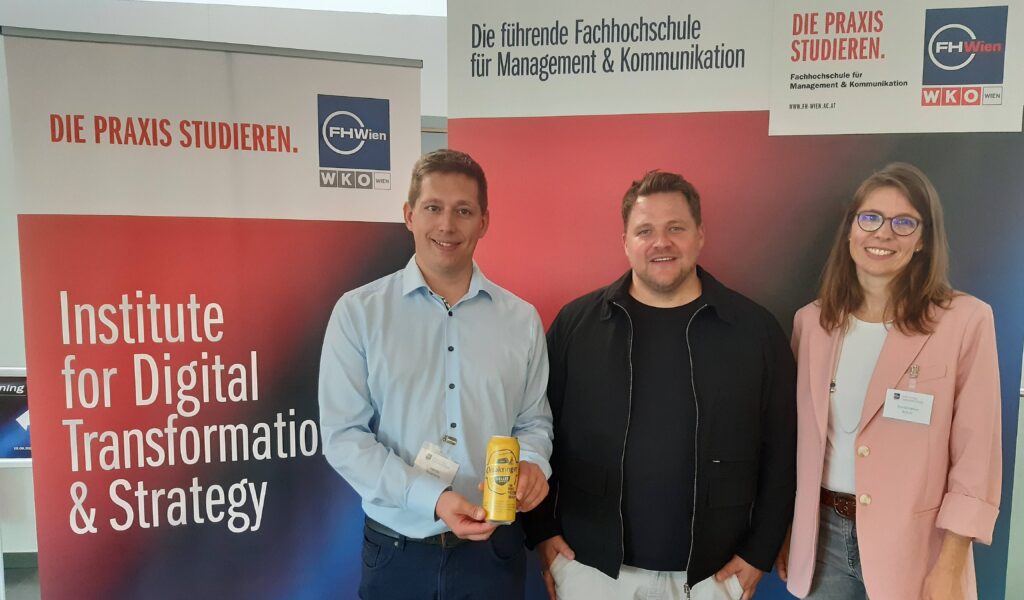The IDS Strategy Morning at FHWien der WKW showed how companies can succeed in digital transformation through ambidextry and looked at digital capabilities in Austrian small and medium-sized enterprises (SMEs) – including the example of Ottakringer Brewery.
Ann-Christine Schulz and Patrick Rupprecht from the Institute for Digital Transformation and Strategy (IDS) at FHWien der WKW presented the initial results of their practical study showing how Austrian SMEs can master digital transformation. In a guest presentation, Martin Eicher explained how Ottakringer Brewery practically applies the concept of organizational ambidextry when introducing digital products. An event within the framework of the project “Organizational Ambidextry in SMEs” funded by the City of Vienna (MA 23).
Balanced and open – but still lacking a digitization strategy in many cases
With the study, which will be published in October 2023, researchers Ann-Christine Schulz and Patrick Rupprecht are investigating the extent to which Austrian SMEs succeed in implementing the balance between efficiency and innovation (the organizational ambidextry) in the context of digital transformation. Initial results show that Austrian SMEs tend toward efficiency, but in a relatively balanced relationship with innovation measures. These become more important in dynamic industries with high competition or great product diversity. According to the present results, digital technologies are used primarily in the areas of mobile technologies, social media and cloud computing. Artificial intelligence (AI), augmented reality and the Internet of Things (IoT) only play a minor role at present. Even though domestic SMEs show great openness and affinity for digital issues, the topic of digitization is only firmly embedded in a few corporate strategies.
Strategy and error culture as a necessity for digital transformation
This strategic embedding and an open corporate culture are also among the concrete recommendations for action cited by the IDS researchers. These include, among other things, constant market observation and the testing of use cases, for which corresponding resources must be anchored. Martin Eicher can only endorse these points, as well as the cooperation with universities and other companies. In his presentation, the Head of “Marketing & Innovation” at Ottakringer provided insights into the innovation processes of the Viennese family brewery. Even if it is hard to accept failure in practice, disruptive innovation presupposes an open culture of error in the company. Eicher described the course of a failed innovation project. But the lessons learned pointed the way to a digital product launch. This was successfully implemented with partner companies and is already showing initial effects on the corporate culture of Ottakringer Holding.
The research results presented as well as the practical experiences with organizational ambidextry provided fuel for a lively discussion with the interested expert audience, which was continued during the concluding get-together at the buffet.
